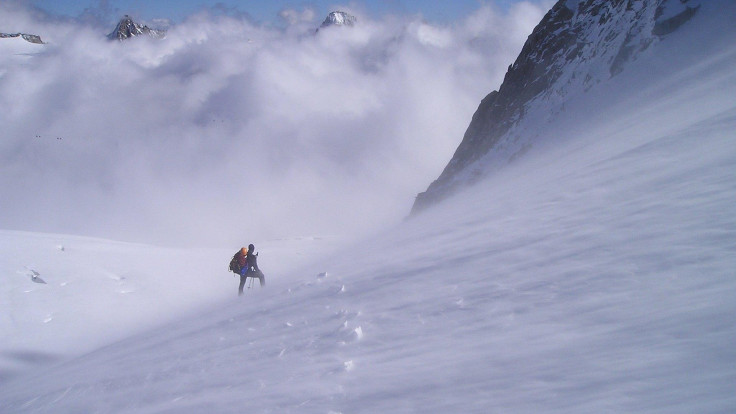Disaster in Chile: British Woman Among Five Tourists Killed After 'Monster' Blizzard Slams Torres del Paine
The group of tourists reportedly became disoriented near Los Perros camp, a remote section of the park

A terrible tragedy has occurred in southern Chile, where a violent blizzard in the Torres del Paine National Park has killed five foreign tourists, including a British woman. The unfortunate incident has shocked tourists globally, especially in the UK, and raised worry about safety in one of Patagonia's most beautiful but seemingly unpredictable natural spots.
The disaster as per sources unfolded on Monday when an intense winter storm suddenly engulfed trekkers exploring Torres del Paine, located in Chile's Magallanes region. According to local authorities, wind gusts reached as high as 193 km/h (about 120 mph), making the weather comparable to a Category 3 hurricane as per reports.
A Deadly Blizzard Hits Torres del Paine Killing 5
The group of tourists reportedly became disoriented near Los Perros camp which is a remote section of the park that can only be reached after a grueling four to five hour hike from the closest vehicle point. Moreover, blizzard conditions, combined with white out visibility and ferocious winds, made navigation nearly impossible and brought rescue efforts to a standstill.
In total, five people have unfortunately died. Furthermore, authorities confirmed that among the victims were two Mexicans, two Germans, and one British woman. Four other tourists, initially reported missing, were found alive after the storm.
The British Foreign, Commonwealth and Development Office said it is coordinating with Chilean authorities in the aftermath of the calamity.
READ MORE: Silent Killer Infections Surge: Superbug Deaths Soar 17% in England — Here's How to Protect Yourself
Rescue Efforts Hampered by Hurricane-Force Winds
Reports say rescue teams including police, soldiers, mountain rescue experts, and even a search dog were mobilised immediately. However, helicopters were grounded by the extreme weather, forcing a 24-member ground team to inch into the area on foot. Moreover, authorities said that once the weather clears, they plan to evacuate the bodies by air. In a press conference, José Antonio Ruiz, the presidential delegate for the region, confirmed that consular procedures are underway for the nationalities involved.
President Gabriel Boric expressed his deep sorrow at the loss of life and paid tribute to the rescue personnel who braved harrowing conditions to help. Furthermore, local authorities have launched an investigation to better understand how the group became stranded and whether any safety protocols failed.
A propósito del lamentable accidente de turistas extranjeros en el Parque Nacional Torres del Paine, quisiera reconocer a los equipos de Carabineros, el Ejército, Socorro Andino y Conaf, quienes han trabajado arduamente y desde el primer momento en las labores de búsqueda,…
— Gabriel Boric Font (@GabrielBoric) November 18, 2025
Risks and Lessons for Tourists in Chile
This tragedy unfortunately shows how dangerous high altitude trekking in Chile can become, even in late spring (November in the southern hemisphere). According to experienced guides and travel experts, the John Gardner Pass which is a part of the 'O Circuit; route in Torres del Paine is especially treacherous under blizzard conditions. Gonzalo Fuenzalida, founder of a Chile-based trekking company, reportedly said that many of the most serious accidents in this national park occur in precisely this area, where sudden changes in weather are common. Local rescuers also added that the pass was unmanned at the time of the incident due to a routine shift change, meaning there was no immediate park staff support when conditions worsened.
Repeatedly on social media and travel forums, trekkers warn that proper preparation is essential. According to posts on platforms like TripAdvisor, hikers should not attempt the 'O Circuit' without strong navigation skills, appropriate cold-weather gear, and experience in mountain terrain. Furthermore, experts also advise that tourists consider hiring local guides experienced with Torres del Paine's unpredictable climate. The region's reputation for 'four seasons in a day' is well earned, and decisions made under pressure can mean the difference between life and death.
The death of a British woman in the blizzard is a cautionary tale now in the UK, with many calling for greater awareness among travelers about the dangers of remote, extreme trekking. British travel advisories may now revisit their guidance on hiking in southern Patagonia, especially given how quickly conditions in Chile can change.
© Copyright IBTimes 2025. All rights reserved.





















